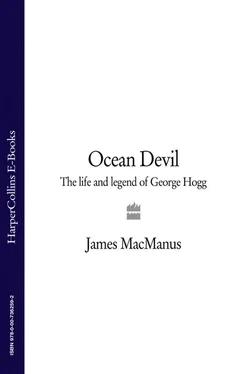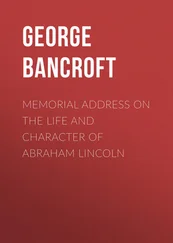He travelled light as he crisscrossed north-west China, moving from one war zone to another; but whether on foot, on horseback or on top of an ancient truck, he always found room for his typewriter. Hogg never stopped writing: letters, short stories, news stories and features. His reporting of the developing industrial co-operative movement in China, which had been initiated in 1938 to replace the country’s shattered manufacturing base, led to a job offer that was to change his life. He joined the movement as a publicity director, with the title ‘Ocean Secretary’, in 1941. The title reflected the general use of the term ‘ocean’ in Mandarin to denote anything foreign – foreigners throughout Chinese history have been known as ‘ocean devils’. This led him in 1942 to become headmaster of a co-operative training school in the remote mountain town of Shuangshipu. It was here, at the crossroads of the Tsingling mountains in north central Shanxi province, that George Hogg found his destiny.
When I travelled to China in 2007 to talk to his old boys, and to the woman he had loved and had hoped to marry, it was clear just how much the man and the moment had come together in Hogg’s headmastership. In Beijing and Xian four of his old boys spoke of the love they still felt for the man who became their adoptive father and headmaster. Looking back, they found it extraordinary that an unknown Englishman should have emerged as their saviour at a critical moment in their young lives.
Because ‘Hogg’ is not a name that is easy to pronounce in Chinese, the boys called him by a Mandarin approximation, ‘Ho Ke’ (pronounced Ho-cur). Nieh Guangchun, the eldest of Hogg’s boys, who was seventy-nine when we met, said: ‘Ho Ke was gentle, he was kind. We had had other headmasters, all Chinese, who punished us. Ho Ke didn’t do that. He was firm but he became a friend. He did everything with us. He taught us English songs, Chinese liberation songs, traditional songs; he loved singing. When we went over the mountains with him we didn’t really know why. We were too young. But we just followed him. We had never met anyone like him. We never will.’
Hogg’s work and memory were vilified during the years of the Cultural Revolution. His grave was desecrated by Red Guards, and his former students were tracked down and forced to denounce their old headmaster. But during the ‘Beijing spring’ of the late 1970s Deng Xiaoping repudiated the Cultural Revolution and personally signalled the rehabilitation of George Hogg, saying in a speech that he deserved ‘immortality as a great international fighter’. The restoration of his burial place in Shandan was accompanied by a long eulogy in the country’s leading newspaper, the People’s Daily , which echoed the tributes paid by former colleagues and pupils to his achievements. As the People’s Daily pointed out, the real memorial to George Hogg lies not in a graveyard in a remote Chinese town, but in the lives of the children he saved and in the lives of their children.
Nieh Guanghan, the fine tenor at our reunion lunch, said: ‘George saved many of our lives. I think many of us would have died one way or another if he had not taken us over the mountains. Our children, their children and future generations will be able to look back on a young Englishman and say without him we would not be here.’
So who was this Englishman who aroused so much love and admiration among boys grown to men whom he had taught in a remote town in China in the 1940s? And what had he done to be singled out by name by the man who led China out of the chaos and cruelty of the Mao era?
Конец ознакомительного фрагмента.
Текст предоставлен ООО «ЛитРес».
Прочитайте эту книгу целиком, купив полную легальную версию на ЛитРес.
Безопасно оплатить книгу можно банковской картой Visa, MasterCard, Maestro, со счета мобильного телефона, с платежного терминала, в салоне МТС или Связной, через PayPal, WebMoney, Яндекс.Деньги, QIWI Кошелек, бонусными картами или другим удобным Вам способом.












